A system of red and green lanes for goods coming into Northern Ireland (NI) from Britain will operate under the terms of a new 'Windsor Framework' agreement between the UK and EU.
Announced by British prime minister Rishi Sunak and European Commission president Ursula von der Leyen on Monday, the new agreement was hailed as a “decisive breakthrough” by Sunak.
He has been under pressure to allay the concerns of NI unionists, who have been unwilling to return to power sharing at Stormont while the original NI Protocol deal, signed up to by his predecessor Boris Johnson, remained in place.
Border
To ensure NI businesses could continue to freely move goods to the EU, the protocol effectively put a border down the Irish Sea for goods coming from Britain, with checks applied at NI ports of entry.
Under the new arrangement, goods from Britain that will be sold in shops in NI will not face any regulatory burden (green lanes), although goods that are destined for onward transit to the Republic of Ireland and the EU will still be subject to checks (red lanes).
“This means we have removed any sense of a border in the Irish Sea,” claimed Sunak at a press conference on Monday.
For NI farmers, the key issues created by the protocol are linked to movement of various plant protection products, as well as seed potatoes, and the return of pedigree cattle that might go unsold at a sale in Britain.
While the detail is yet to emerge, the inference is that these types of issues are all now sorted. “Trees, plants and seed potatoes will again be available in garden centres [in NI],” suggested Sunak.
European court
A big political issue has centred on the role of the European court in adjudicating on EU rules that impact in NI.
The solution to that is a “Stormont brake”, where politicians in NI will be able to ask the UK government to stop any new EU laws applying in NI.
In practice, were that to occur, it is likely to have implications for NI’s ability to continue to trade freely into the EU market.
It highlights that despite the latest deal, Brexit will remain an ongoing negotiation between the EU and the UK.
It remains to be seen whether the 'Windsor Framework' will be enough to get unionists back in government at Stormont.
Welcome
IFA president Tim Cullinan welcomed the agreement on a framework to facilitate trade between the EU, the UK and Northern Ireland.
“While we await the full details of any new arrangements, it is much better to have a negotiated outcome rather than having to resort to unilateral measures,” he said.
“There is already significant co-operation between the farming sectors in NI and the Republic of Ireland. Approximately one third of our food exports still go to the UK, so having rules-based trade that preserves the integrity of the single market is extremely important for Irish farming,” he said.
UFU sees ‘progress made’
The Ulster Farmers’ Union (UFU) was welcoming of the deal, but said that some issues still require further work.
Its president David Brown cited animal movements, veterinary medicines and animal feed as areas which require further clarification.
“We commend the substantial efforts of both the EU and the UK to find joint solutions on the Northern Ireland (NI) Protocol,” commented Brown.
“From the outset, we have sought on behalf of farm families and the future of the NI agri-food industry to secure a workable and durable solution that enables free and frictionless trade east-west and north-south.”
“It’s extremely positive that progress has now been made on some of the issues that required legislative changes, issues that have been impacting agriculture and creating uncertainty for our members.”
The UFU saw the easing of phytosanitary restrictions as being constructive for the farming sector in NI.
“Legislative change will allow the lifting of the ban on plants and seeds from GB coming to NI. Like other items travelling via the ‘green lane’, the final destination is within NI, effectively for planting to grow crops or trees, or for horticultural purposes.
“Other issues such as livestock movements, veterinary medicines, plant protection products and grain for livestock feed still require a technical solution.
“Through improved engagement and constructive discussions, we want to see solutions found that deliver for those impacted by these challenges,” finished Brown.
The union said it would examine the details of the deal over the coming days to see how any future changes in agricultural policy in the EU may affect farmers in NI.
Read more
UFU unclear about new Brexit deal
UK exports rebound
A system of red and green lanes for goods coming into Northern Ireland (NI) from Britain will operate under the terms of a new 'Windsor Framework' agreement between the UK and EU.
Announced by British prime minister Rishi Sunak and European Commission president Ursula von der Leyen on Monday, the new agreement was hailed as a “decisive breakthrough” by Sunak.
He has been under pressure to allay the concerns of NI unionists, who have been unwilling to return to power sharing at Stormont while the original NI Protocol deal, signed up to by his predecessor Boris Johnson, remained in place.
Border
To ensure NI businesses could continue to freely move goods to the EU, the protocol effectively put a border down the Irish Sea for goods coming from Britain, with checks applied at NI ports of entry.
Under the new arrangement, goods from Britain that will be sold in shops in NI will not face any regulatory burden (green lanes), although goods that are destined for onward transit to the Republic of Ireland and the EU will still be subject to checks (red lanes).
“This means we have removed any sense of a border in the Irish Sea,” claimed Sunak at a press conference on Monday.
For NI farmers, the key issues created by the protocol are linked to movement of various plant protection products, as well as seed potatoes, and the return of pedigree cattle that might go unsold at a sale in Britain.
While the detail is yet to emerge, the inference is that these types of issues are all now sorted. “Trees, plants and seed potatoes will again be available in garden centres [in NI],” suggested Sunak.
European court
A big political issue has centred on the role of the European court in adjudicating on EU rules that impact in NI.
The solution to that is a “Stormont brake”, where politicians in NI will be able to ask the UK government to stop any new EU laws applying in NI.
In practice, were that to occur, it is likely to have implications for NI’s ability to continue to trade freely into the EU market.
It highlights that despite the latest deal, Brexit will remain an ongoing negotiation between the EU and the UK.
It remains to be seen whether the 'Windsor Framework' will be enough to get unionists back in government at Stormont.
Welcome
IFA president Tim Cullinan welcomed the agreement on a framework to facilitate trade between the EU, the UK and Northern Ireland.
“While we await the full details of any new arrangements, it is much better to have a negotiated outcome rather than having to resort to unilateral measures,” he said.
“There is already significant co-operation between the farming sectors in NI and the Republic of Ireland. Approximately one third of our food exports still go to the UK, so having rules-based trade that preserves the integrity of the single market is extremely important for Irish farming,” he said.
UFU sees ‘progress made’
The Ulster Farmers’ Union (UFU) was welcoming of the deal, but said that some issues still require further work.
Its president David Brown cited animal movements, veterinary medicines and animal feed as areas which require further clarification.
“We commend the substantial efforts of both the EU and the UK to find joint solutions on the Northern Ireland (NI) Protocol,” commented Brown.
“From the outset, we have sought on behalf of farm families and the future of the NI agri-food industry to secure a workable and durable solution that enables free and frictionless trade east-west and north-south.”
“It’s extremely positive that progress has now been made on some of the issues that required legislative changes, issues that have been impacting agriculture and creating uncertainty for our members.”
The UFU saw the easing of phytosanitary restrictions as being constructive for the farming sector in NI.
“Legislative change will allow the lifting of the ban on plants and seeds from GB coming to NI. Like other items travelling via the ‘green lane’, the final destination is within NI, effectively for planting to grow crops or trees, or for horticultural purposes.
“Other issues such as livestock movements, veterinary medicines, plant protection products and grain for livestock feed still require a technical solution.
“Through improved engagement and constructive discussions, we want to see solutions found that deliver for those impacted by these challenges,” finished Brown.
The union said it would examine the details of the deal over the coming days to see how any future changes in agricultural policy in the EU may affect farmers in NI.
Read more
UFU unclear about new Brexit deal
UK exports rebound



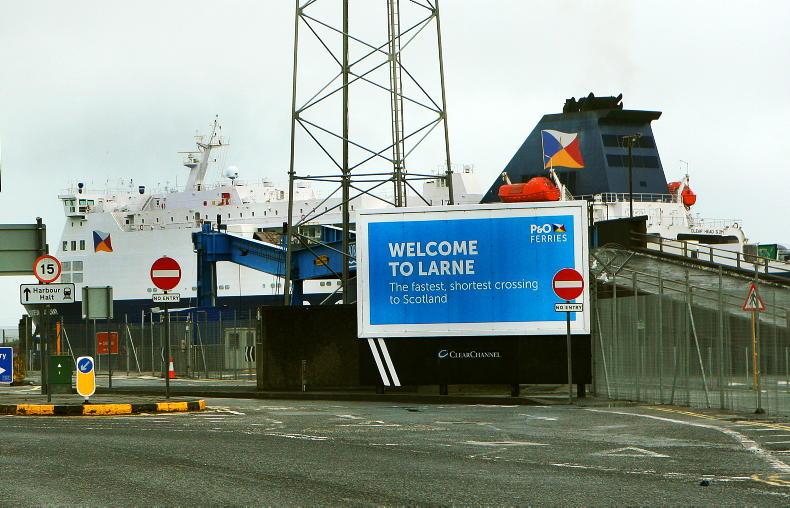
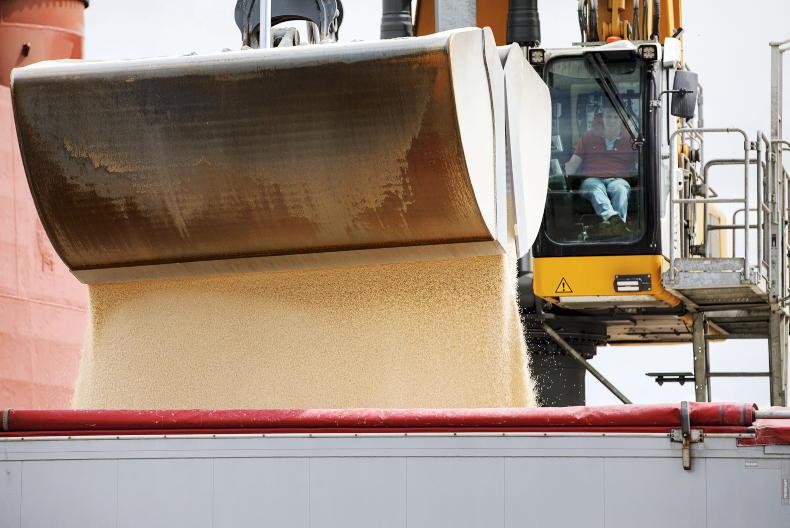
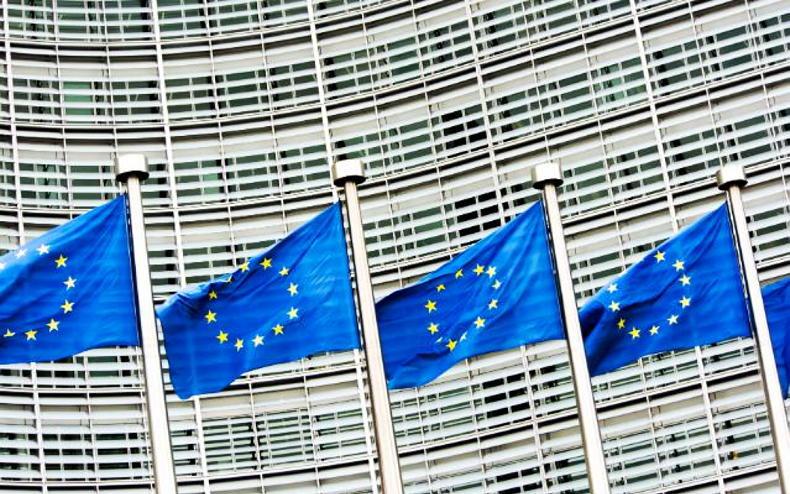
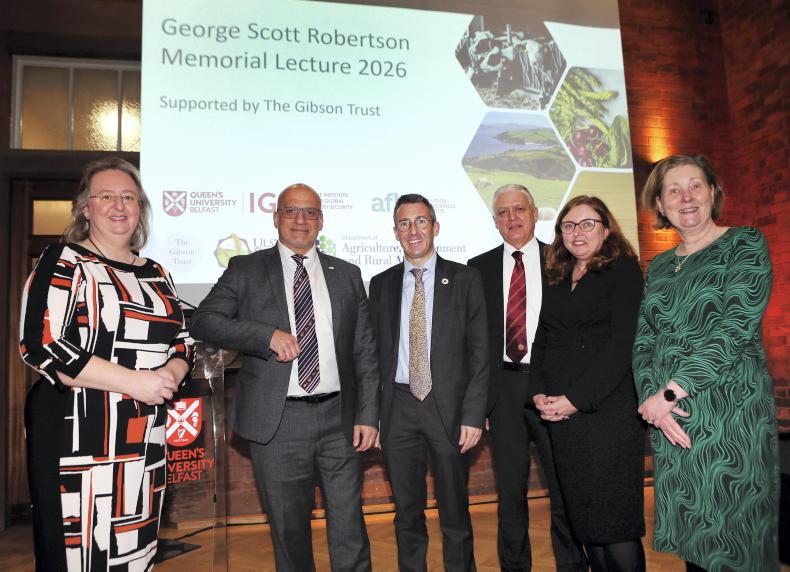
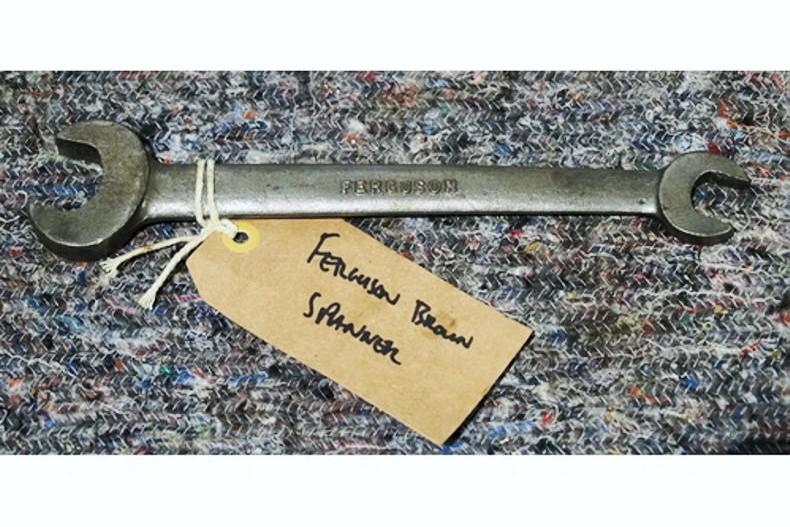
SHARING OPTIONS